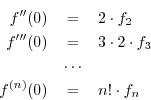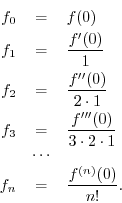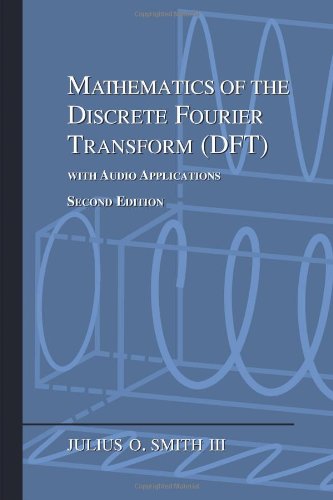Informal Derivation of Taylor Series
We have a function ![]() and we want to approximate it using an
and we want to approximate it using an
![]() th-order polynomial:
th-order polynomial:
Our problem is to find fixed constants
![]() so as to obtain
the best approximation possible. Let's proceed optimistically as though
the approximation will be perfect, and assume
so as to obtain
the best approximation possible. Let's proceed optimistically as though
the approximation will be perfect, and assume
![]() for all
for all ![]() (
(
![]() ), given the right values of
), given the right values of ![]() . Then at
. Then at ![]() we
must have
we
must have

where
![]() denotes the
denotes the ![]() th derivative of
th derivative of ![]() with respect to
with respect to
![]() , evaluated at
, evaluated at ![]() . Solving the above relations for the desired
constants yields
. Solving the above relations for the desired
constants yields

Thus, defining
![]() (as it always is), we have derived the
following polynomial approximation:
(as it always is), we have derived the
following polynomial approximation:

Next Section:
Taylor Series with Remainder
Previous Section:
Appendix: Frequencies Representable by a Geometric Sequence




















